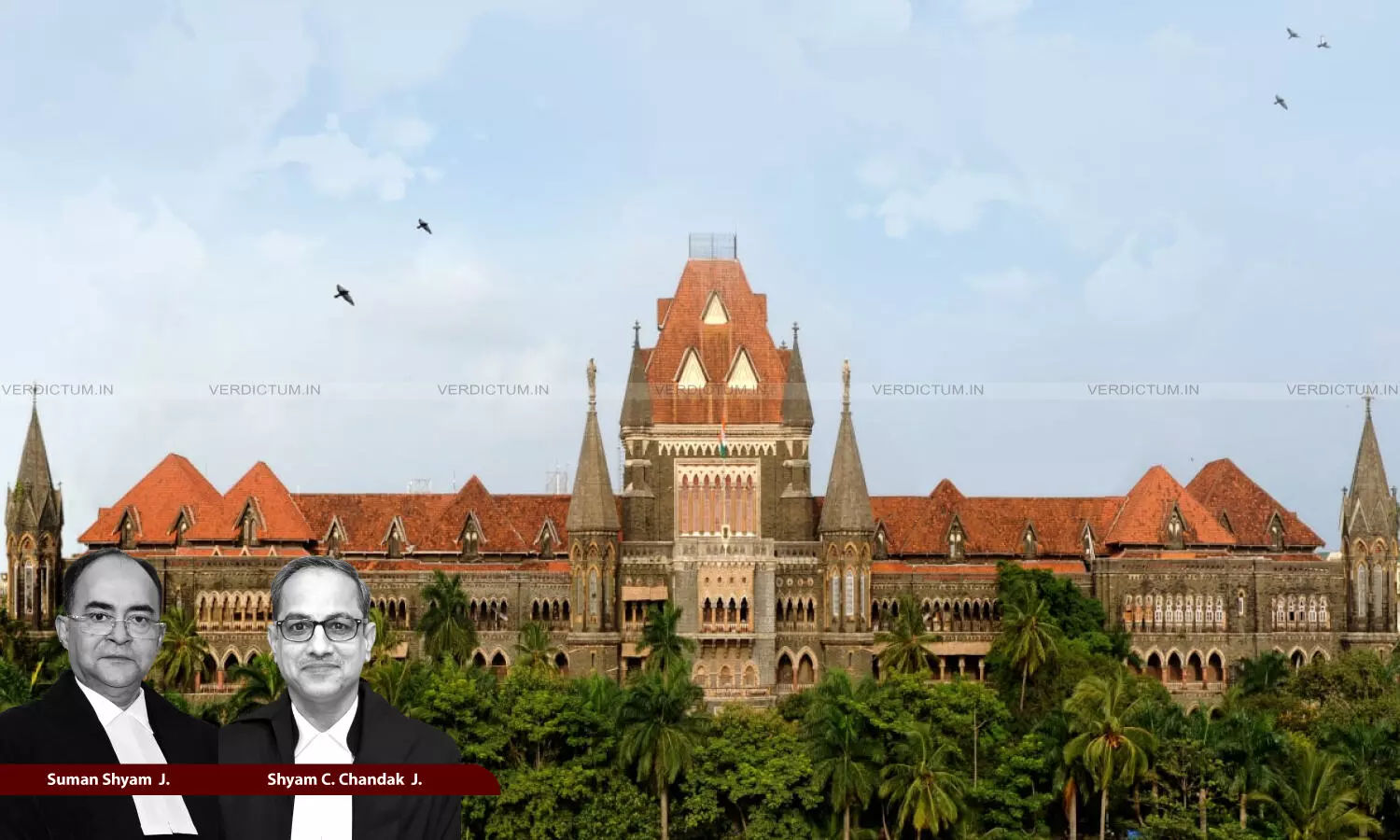
Justice Suman Shyam and Justice Shyam C. Chandak: Bombay High Court
Bombay High Court Declares Transfer Fees Charged By Bar Council Of Maharashtra & Goa Illegal Under Advocates Act, 1961
 |
|The high court of Bombay held that State Bar Councils cannot charge transfer fees beyond what is stipulated under Section 18 of the Advocates Act, and directed that its ruling will apply prospectively.
The Bombay High Court has allowed a writ petition filed by an advocate challenging the collection of transfer fees by the Bar Council of Maharashtra and Goa for shifting his enrollment from the Bar Council of Uttar Pradesh.
A Division Bench of Justice Suman Shyam and Justice Shyam C. Chandak held that “the fact remains that realization of such fee for transfer of enrollment was not permissible under section 18(1) of the Act of 1961. As such, by applying the ratio laid down in the decision of Gaurav Kumar (supra) to the facts of this case, the fee charged by the Respondent No. 1 for transfer of Petitioner’s enrollment cannot be held to be valid in the eyes of law. Therefore, the same is declared to be illegal on the ground of the same being in contravention of the mandate of section 18(1) of the Act of 1961.”
Background
The petitioner, a practising advocate, was originally enrolled with the Bar Council of Uttar Pradesh in 2003. After relocating to Mumbai, he applied in 2013 to transfer his enrollment to the Bar Council of Maharashtra and Goa.
The Bar Council charged a total of ₹15,405 as transfer fees, including contributions to the Bar Council of India and both State Bar Councils. The petitioner challenged this demand, contending that under Section 18 of the Advocates Act, 1961, the transfer of an advocate’s name from one State roll to another must be carried out free of cost.
The petitioner argued that the collection of fees was based on Resolution No. 112 of 2010, passed by the Bar Council of Maharashtra and Goa, which he claimed was illegal. He also submitted that transfer fees had been wrongly calculated retrospectively from 2003, despite his enrollment with the Maharashtra Bar beginning only in 2014.
In his plea, he sought quashing of the resolution and requested directions to stop collecting such fees in future, relying on the Supreme Court’s ruling in Gaurav Kumar v. Union of India, where the Court held that State Bar Councils cannot levy fees beyond those stipulated by statute.
Court’s Observations
The Court took note of Section 18(1) of the Advocates Act, 1961, which governs the transfer of an advocate’s enrollment from one State roll to another. The section states that any person whose name is entered as an advocate on the roll of any State Bar Council may make an application in the prescribed form to the Bar Council of India for the transfer of his name from the roll of that State Bar Council to the roll of any other State Bar Council and, on receipt of any such application the Bar Council of India shall direct that the name of such person shall, without the payment of any fee, be removed from the roll of the first mentioned State Bar Council and entered in the roll of the other State Bar Council and the State Bar Councils concerned shall comply with such direction.
The high court of Bombay observed that this provision leaves no room for State Bar Councils to charge any amount towards transfer fees, as the process is explicitly meant to be free of cost.
It further noted that the Bar Council of Maharashtra and Goa had relied on its own resolution to collect transfer fees, but the Advocates Act did not empower State Bar Councils to impose charges beyond those prescribed by the statute. The Court emphasised that resolutions passed by State Bar Councils cannot override legislative provisions and must remain subordinate to the mandate of Parliament.
Conclusion
Allowing the writ petition, the Court set aside the Bar Council’s demand for transfer fees and directed that its decision would apply prospectively. Since the petitioner had already clarified that he was not seeking a refund or other relief, the Court limited its ruling only to quashing the validity of such fees for future cases.
The Court disposed of the matter with no order as to costs.
Cause Title: Devendra Nath Tripathi v. Union of India & Ors.
Appearances
Petitioner: Devendra Nath Tripathi (in person) with Advocate D.V. Saroj
Respondents: Advocate Yogendra Rajgor